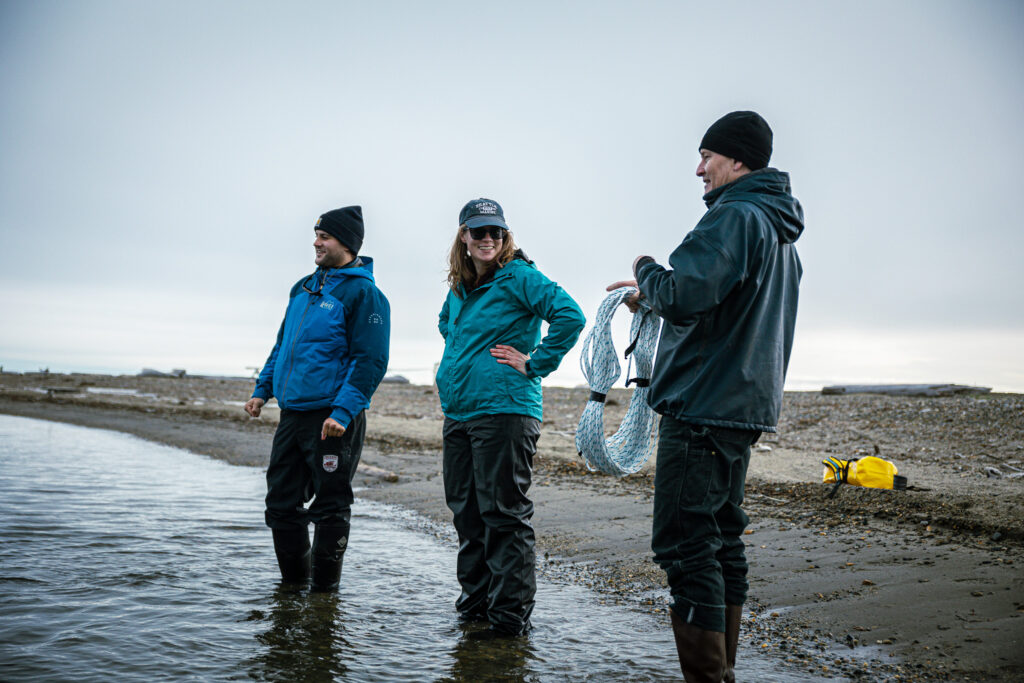Dr. Emily Eidam, PI
Associate professor
I’m a sedimentologist / marine geologist with background in Civil Engineering (BS, UAA), Geology (BS, UAA), and Oceanography (MS and PhD, UW). I grew up in Eagle River, Alaska (near Anchorage) in a landscape sculpted by glaciers and interesting sedimentary processes. I enjoy working in “process sedimentology” because it combines elements of fluid dynamics, sedimentology, and oceanography and allows us to explore how sediments move through a system over human timescales, and how they ultimately contribute to the geologic record. This work synthesizes data from diverse tools (e.g., oceanographic sensors, isotope geochronology, remote sensing) and helps us better predict where sediment is going and under what conditions—with relevance to models of coastal evolution, nutrient and contaminant transport, and geologic resource formation.

Jeff Wood, Lab Manager
Senior Faculty Research Assistant II
Jeff supervises lab and field work in the Coastal Seds Lab, including isotope analyses and instrument deployments in remote locations. Jeff has a wealth of experience from the Ocean Observatories Initiative and Ruggiero Lab at OSU, including work with large mooring deployments, beach and dune surveys, and bathymetric mapping from small craft.
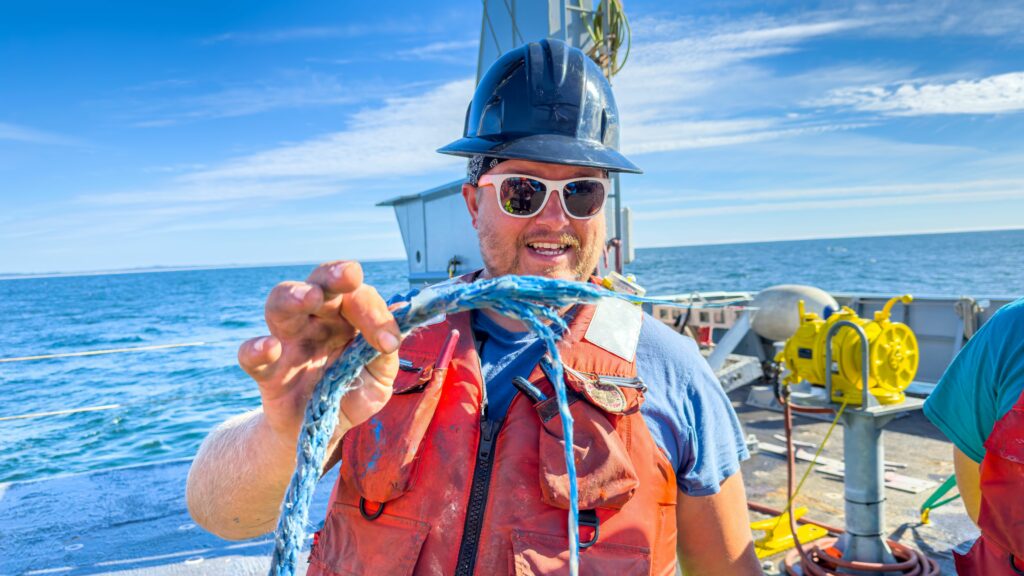
Dr. Molly Keogh
NSF OPP Postdoctoral fellow
Molly is a National Science Foundation OPP postdoctoral scholar with PhD in Earth and Environmental Sciences from Tulane University and BS in Geology from the University of Oregon. Molly specializes in studying coastal sediment dynamics, including how sediment moves through coastal systems, and what it means for resilience of estuaries, deltas, and other low-lying coastal environments. Fun fact: her graduate work is featured in the documentary film “Last Call for the Bayou” (Episode 2, “Mud, Sweat, and Fears”).

Dr. Mackenzie Jewell
Postdoctoral Scholar
MacKenzie is a postdoctoral scholar who earned PhD and MS degrees in Ocean, Earth, and Atmospheric Sciences from Oregon State University, and a BS in Physics from Western Washington University. MacKenzie specializes in the study of sea ice dynamics and air-ice-ocean interactions, aiming to improve understanding of the drivers and impacts of changing sea ice cover in the polar regions. As a member of the Coastal Freeze project, she integrates field observations, numerical modeling, and remote sensing to investigate the process of sediment entrainment in sea ice along the northern coast of Alaska.
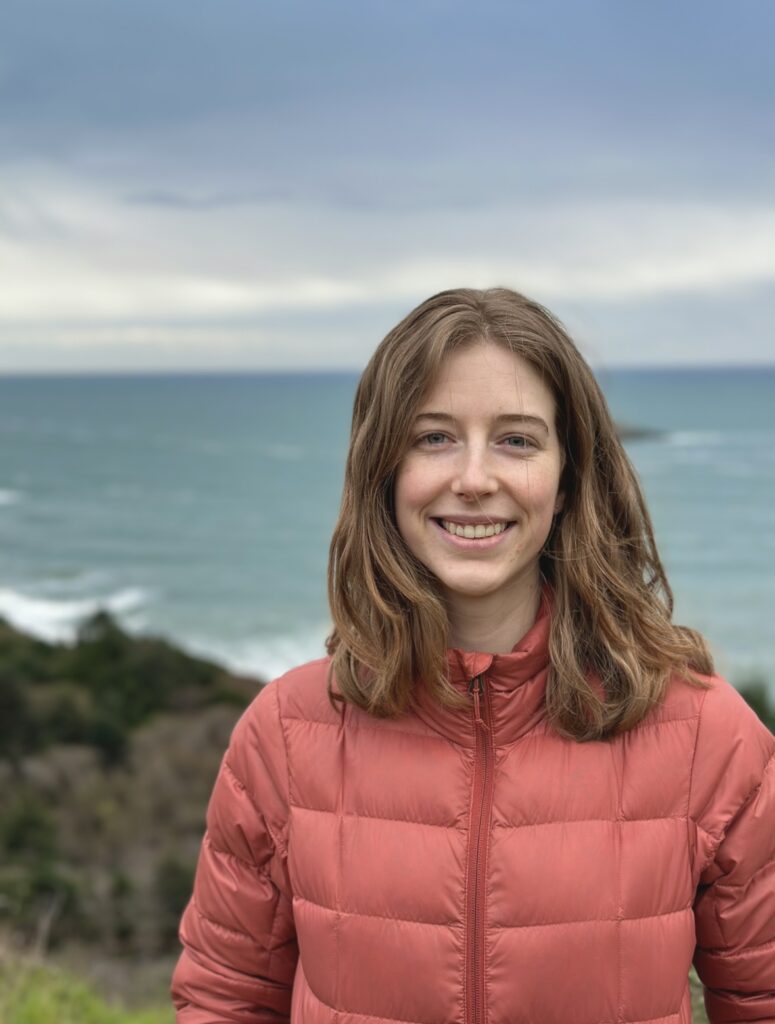
Dr. Hannah Glover
Research Scientist, OSU Civil & Construction Engineering
Hannah is a research scientist based in Civil & Construction Engineering and CEOAS. She earned her MS and PhD degrees in Oceanography from the University of Washington and studies sediment transport, DAS systems, marine mapping, and diverse other topics.

Emily An, MS student
Ocean, Earth, & Atmospheric Sciences Program
Emily is working on suspended sediment distribution in ice fjords of western Greenland as a part of the TERMINUS project. She has a B.S. in Marine Sciences and minors in Geology and Wildlife Ecology & Conservation from UF. Her undergraduate research used strontium isotopes from glacial and deglacial stream waters of southwest Greenland to track the progression of sediment and rock weathering with ice sheet retreat. Between her degree programs she worked on biodynamic farms, assisted on an Arctic research cruise, and instructed field conservation ecology courses on Maui.

Eden Krolopp, MS student
Ocean, Earth, & Atmospheric Sciences Program
Eden has experience in hydrologic data collection and analysis. She completed a BS in Geology and Environmental Policy from the University of Puget Sound and a Graduate Certificate in River-Coastal Science and Engineering from Tulane University. As part of the Eidam Lab, she works with the Beaufort Lagoon Ecosystems LTER team studying coastal sediment dynamics in Northern Alaska.

Sean Finney, MS student
Geography and Geospatial Science Program
Sean is a GIS professional who is conducting research on streamflow and sediment export in the Oregon Coast Range. He is presently using public database records to evaluate sediment rating curves and impacts from logging in partnership with Dr. Julia Jones in Geography.

Tess Hoffman
Undergraduate research assistant
Tess is majoring in Education and Oceanography, and is pursuing a career in K12 education. She is working with Molly on polar core samples (including isotope lab work) and will be teaming up on the BLE LTER project in summer 2025.
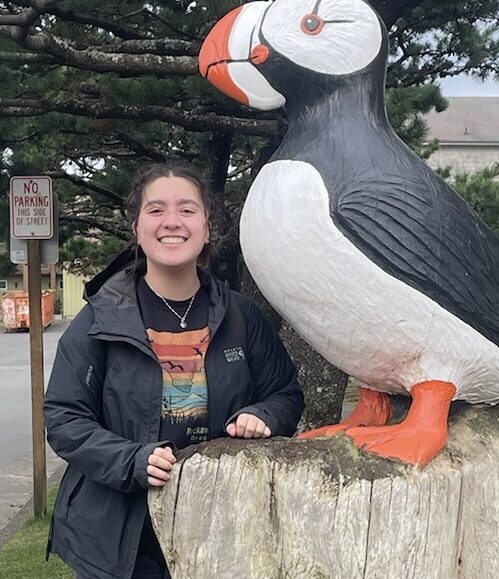
Lauren Damon
Undergraduate research assistant
Lauren is majoring in Oceanography and Economics. She has been working on Pb-210 analyses of polar sediment cores with Molly and Emily E. Her prior laboratory experience includes trace metal electrochemisty (CLE-AdCSV) at OSU and studied abroad for a semester at James Cook University in Townsville, Australia.
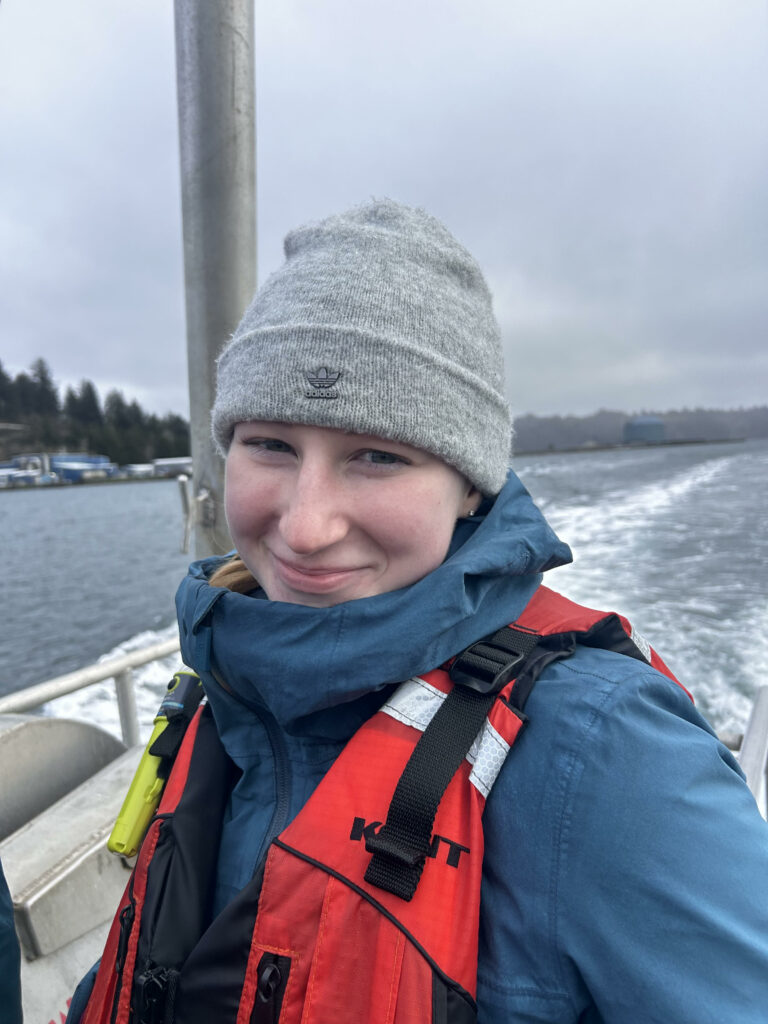
Penn Miles
Undergraduate research assistant
Penn is majoring in oceanography and is interested in pursuing a career in environmental data analysis. She is also interested in 3D modeling software such as Blender, and is interested in pursuing engineering training in the future..
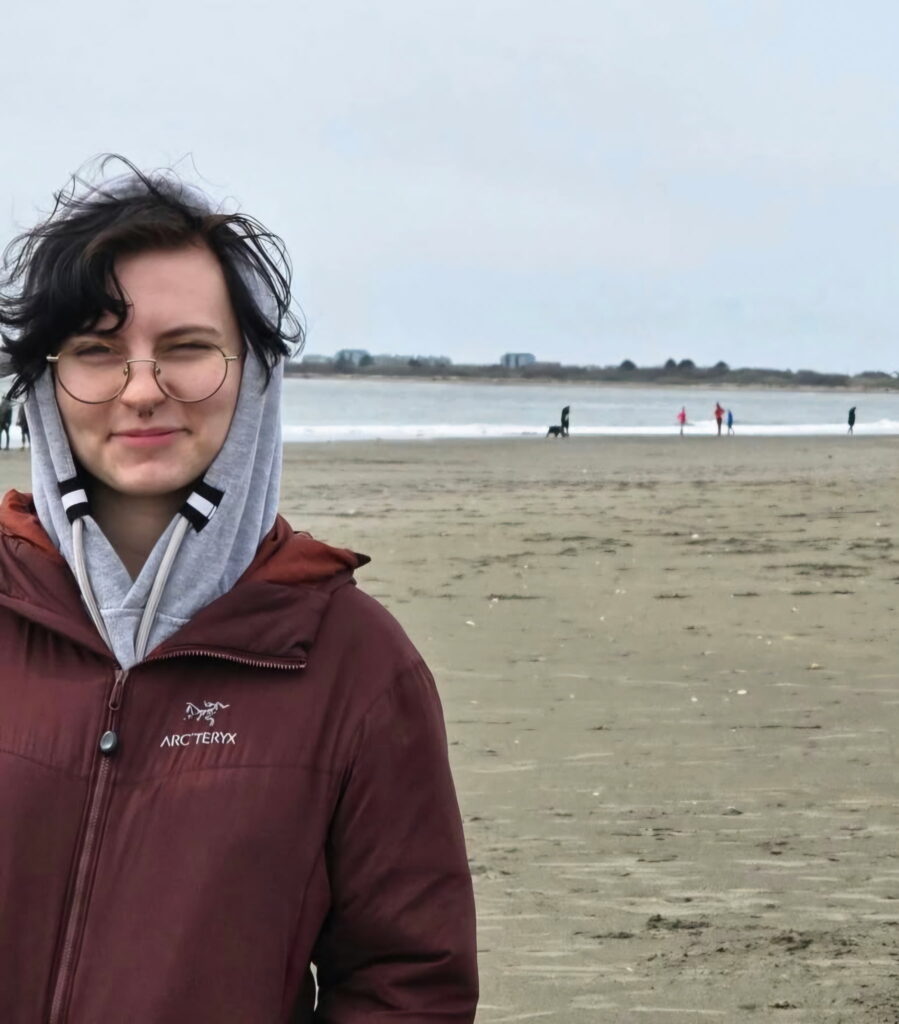
Maya Moran
Undergraduate research assistant
Maya is majoring in Oceanography and has experience working with sensors through the Ocean Observing Intiative as well as experience working on fishing vessels in Alaska in the summers. Maya will be teaming up with the Coastal Freeze project for a Beaufort Sea survey in fall 2025.

Lab Alumni
Grace Meyer, Lab Manager (OSU) – (2023-2024) Grace supervised Pb-210 and related sediment analyses, worked on ongoing openOBS development, wrote SOPs for the lab group, and also worked part-time in Dr. Jenn Fehrenbacher’s foram lab. Grace advanced to a federal analyst position in fall 2024.
Adrian Heath, MSc 2024 (OSU) – Adrian analyzed short gravity cores and multibeam data from the Alaskan Beaufort Shelf and found that the inner shelf is erosional and the middle shelf is non-depositional over multidecadal timescales, in spite of seasonal mid-shelf depositional patterns. Thesis: Sedimentation and Erosion on an Arctic Continental Shelf: Harrison Bay and Colville River Delta, Alaska.
Caroline Cooper, MSc 2023 (UNC) – Caroline worked to develop a depth-averaged profile model of arctic delta development in Delft3D. Post-graduation she advanced to an environmental compliance position with the State of South Carolina. Thesis: Modeling the effects of sea ice on arctic delta evolution: A case study on the Colville River Delta, AK.
Tyler Souza, MSc 2022 (UNC) – Tyler collected and analyzed a suite of sediment cores from the Coos Bay Estuary (Oregon) and used Pb-210 isotope profiles to quantify sediment accumulation rates. Post-graduation he advanced to a coastal staff scientist position with Geosyntec Consultants in North Carolina. Thesis: A century of disturbance: How anthropogenic modification has affected sediment accumulation patterns in the Coos Estuary in the last 100 years.
John Malito, MSc 2021 (UNC) – John evaluated the sediment-transport dynamics of arctic continental shelves in Delft3D in order to test the sensitivity to a more energetic wave climate. Post-graduation he advanced to a coastal research scientist position with the Texas Bureau of Economic Geology. Thesis: Evolution of arctic continental shelves: Modelling morphodynamic feedbacks to climate-driven increases in sea states.
Undergraduate research assistants and REUs (OSU and UNC) – Riley Smith, Anika Lechner Armitage, Abigail Gaddis (REU, ’24), Michael Clark (REU, ’24), Ashleigh Wojcik, Leo Marchyok, Savana Stallsmith, Lillian Cooper, David Go, Daniela Zarate, McKenzie McLean, Owen White, Bayaar Sayed, Rachael Rankin, Carly Richardson
——————————————————

